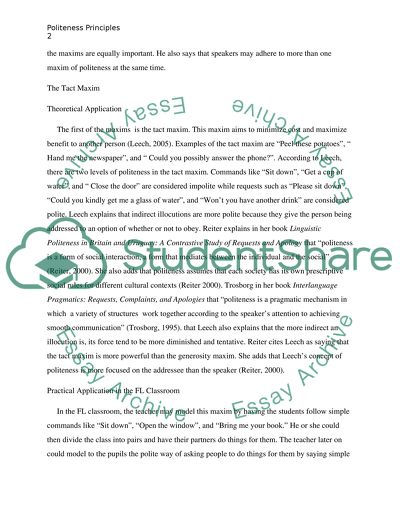Cite this document
(“The Impacts of the Politeness Principle on Foreign Language Term Paper”, n.d.)
Retrieved de https://studentshare.org/english/1390870-the-impacts-of-the-politeness-principle-on-foreign-language-acquisition-geoff-leech
Retrieved de https://studentshare.org/english/1390870-the-impacts-of-the-politeness-principle-on-foreign-language-acquisition-geoff-leech
(The Impacts of the Politeness Principle on Foreign Language Term Paper)
https://studentshare.org/english/1390870-the-impacts-of-the-politeness-principle-on-foreign-language-acquisition-geoff-leech.
https://studentshare.org/english/1390870-the-impacts-of-the-politeness-principle-on-foreign-language-acquisition-geoff-leech.
“The Impacts of the Politeness Principle on Foreign Language Term Paper”, n.d. https://studentshare.org/english/1390870-the-impacts-of-the-politeness-principle-on-foreign-language-acquisition-geoff-leech.


